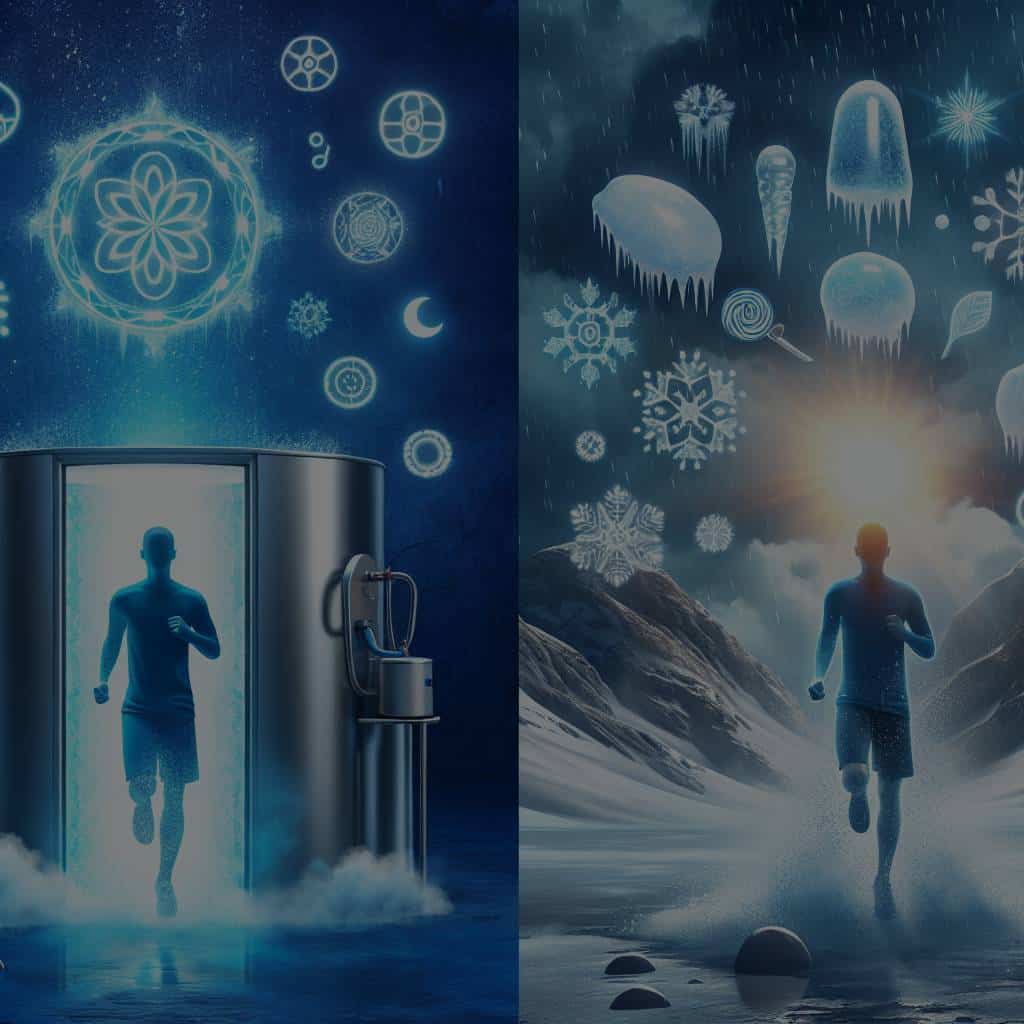What Are the Mental Health Benefits of Regular Cold Exposure and Cryotherapy?

In today’s world, we are continually exploring innovative ways to maintain and improve our health. Among these, the benefits of cold exposure and cryotherapy have become increasingly popular, shedding light on how this practice positively impacts our mental health. But how does this work? Does the icy plunge or the chilly environment exert a psychological effect, or is there more to it?
This article will dive deep into the sea of information and studies available on this fascinating subject, highlighting the health benefits of regular cold exposure and cryotherapy. We’ll explore the effects on the body, the connection to stress, and the mental benefits, all supported by solid scientific research.
Also to see : Thai massage: discover relaxation and muscle tension relief
The Biological Response to Cold Exposure
Exposure to cold conditions produces a significant response from our bodies. Whether it’s taking an ice bath, a cold shower, or stepping into a cryotherapy chamber, our body undergoes a series of changes to cope with the lowered temperature. When you understand these changes, you will better appreciate the benefits this practice may offer.
When exposed to cold, our bodies kick into survival mode. The blood vessels constrict in response to the icy conditions, a process known as vasoconstriction. This response aims to retain body heat and protect vital organs. As a result, blood circulation increases, pumping oxygen and nutrients more effectively throughout the body.
This might interest you : How Do Nutrition and Lifestyle Interventions Compare in Lowering Risk for Type 2 Diabetes?
A study from PubMed explains that this increased circulation can help flush toxins and metabolic waste from the body, keeping our systems clean and functioning optimally. Moreover, with cold exposure, the body releases endorphins, the so-called ‘feel-good’ hormones, which can significantly impact our mental health.
Cryotherapy: A Cold Health Revolution
Cryotherapy is a process where the body is exposed to extreme cold temperatures for a short period, often in a specialized chamber. While the thought of this might send shivers down your spine, the therapy has gained a lot of attention for its potential health benefits.
In fact, a study from the National Institute of Health found that whole-body cryotherapy significantly reduced symptoms of anxiety and depression in participants. The study suggests that the shock of cold temperatures may stimulate the nervous system, triggering an anti-depressive effect.
Cryotherapy is also widely used for pain management. The cold temperature reduces inflammation, a common cause of pain. By reducing inflammation, cryotherapy can help manage chronic pain, improve mobility, and overall quality of life.
Cold Exposure and Stress Reduction
Stress is a part of our everyday lives, but excess stress can lead to a multitude of health problems. Interestingly, regular cold exposure might help manage and reduce stress levels.
When the body is exposed to cold, it undergoes a natural stress response. This might sound counterproductive, but it’s actually beneficial. Regular exposure to cold can train your body to handle this stress response, making it more resilient over time.
This resilience is not just physical but also mental. By repeatedly exposing your bodies to cold, you are teaching yourselves to stay calm under stress, enhancing your mental fortitude.
Mental Health Benefits of Cold Exposure
Now, let’s delve deeper into the mental health benefits of cold exposure and cryotherapy. Apart from reducing stress and symptoms of depression, what else can this practice do for our mental health?
One of the less discussed benefits of cold exposure is its potential to improve sleep quality. Poor sleep can lead to a wide range of mental health problems, including depression, anxiety, and cognitive issues. Cold exposure, however, can help our bodies relax and prepare for a restful night’s sleep.
Furthermore, cold exposure has been linked to increased focus and alertness. Taking cold showers or a quick dip in icy water can stimulate the nervous system, leading to enhanced mental clarity and improved productivity.
Cold Therapy: Immersion and Beyond
Cold immersion therapy, often in the form of ice baths, is another popular method of cold exposure. Athletes commonly use this method to speed up recovery and reduce muscle soreness. However, the benefits go beyond physical recovery and pain relief.
Mentally, cold immersion can make you feel more alive, alert, and energized. This can be attributed to the release of adrenaline and endorphins, giving you a natural ‘high.’ This mental stimulation can help combat feelings of lethargy, depression, and even burnout.
While much of the research on cold exposure and mental health is still emerging, the current evidence suggests promising benefits. Whether it’s a quick cold shower, a plunge into icy water, or a session in a cryotherapy chamber, introducing cold exposure into your regular routine might hold the key to enhanced mental wellbeing.
The Wim Hof Method: Harnessing the Power of Cold
The Wim Hof Method, named after its Dutch inventor, has brought cold exposure to the mainstream. Known also as "The Iceman," Wim Hof claims that consistent exposure to cold water can lead to a host of health benefits. His method, which includes cold showers, ice baths, breathing exercises, and meditation, has been adopted by many in the quest for improved mental health and wellness.
One of the main principles of the Wim Hof method is regular cold showers. Unlike cryotherapy or ice baths, a cold shower is a more accessible form of cold therapy for most people. According to a study from PubMed, a cold shower can increase blood flow, boost mood, and even strengthen the immune system. It’s also believed to help manage depressive symptoms, as the cold water shocks the system, triggering an anti-depressive effect.
The Wim Hof method also highlights the relationship between cold exposure and improved blood pressure. With regular cold showers or baths, the body’s response to cold can result in better blood circulation, which can lower blood pressure over time.
While cold showers are a key component of the Wim Hof Method, other tactics like controlled breathing exercises and meditation are also crucial. They work synergistically with cold exposure, enhancing the benefits on mental health.
Adipose Tissue Activation: Turning the Cold into Heat
It’s not just about blood flow or the shock response, though. One of the exciting aspects of cold exposure revolves around adipose tissue, specifically brown adipose tissue or BAT.
BAT, unlike its counterpart white adipose tissue (WAT), is active in metabolism and plays a significant role in thermogenesis, the process of heat production in organisms. When you expose yourself to cold, BAT gets activated and starts burning calories to generate heat and maintain body temperature.
This process has two significant health benefits. Firstly, it can help control weight as the body burns extra calories. Secondly, the process of thermogenesis releases heat, which can have a calming effect on the body, thereby improving mental health.
A study conducted by the National Institute of Health showed that regular exposure to cold increased the activity of BAT in the body, leading to enhanced thermogenesis. This means that cold showers, ice baths, or even spending time in cold environments could potentially contribute to weight control and mental wellness.
Bringing it All Together: Cold Exposure for Mental Health
As we’ve explored, the benefits of regular cold exposure and cryotherapy are increasingly supported by scientific research. From reducing stress and symptoms of depression to improving sleep and alertness, the mental health benefits are substantial.
While it may be challenging to adopt these practices initially, the potential health benefits make it worth the effort. Whether it’s a quick cold shower, a dip in an ice bath, or a session in a cryotherapy chamber, there are many ways to incorporate cold therapy into your routine.
To maximize the benefits, you could combine cold exposure with other practices like deep breathing exercises, meditation, or even yoga. These practices can complement each other, leading to enhanced mental clarity, resilience, and overall well-being.
In conclusion, while more research is needed, present studies suggest that regular cold exposure could be a powerful tool for improving mental health. As with any new health practice, it’s important to approach it sensibly and consult with a healthcare professional if you have any concerns.
Remember, the journey towards health and wellness is a marathon, not a sprint. Every icy plunge, every deep breath, is a step towards a healthier, happier you. So, why not give cold exposure a try? The benefits are just a cold shower away.
